-
 Bitcoin
Bitcoin $103,243.7406
3.45% -
 Ethereum
Ethereum $2,335.3701
20.03% -
 Tether USDt
Tether USDt $0.9999
-0.03% -
 XRP
XRP $2.3932
8.33% -
 BNB
BNB $633.7730
3.06% -
 Solana
Solana $168.4639
8.84% -
 USDC
USDC $1.0001
0.01% -
 Dogecoin
Dogecoin $0.2074
12.81% -
 Cardano
Cardano $0.7919
9.96% -
 TRON
TRON $0.2592
3.07% -
 Sui
Sui $3.9942
6.90% -
 Chainlink
Chainlink $16.1425
8.53% -
 Avalanche
Avalanche $23.1914
10.37% -
 Stellar
Stellar $0.3033
10.18% -
 Shiba Inu
Shiba Inu $0.0...01541
14.48% -
 Hedera
Hedera $0.2020
8.09% -
 Hyperliquid
Hyperliquid $25.0754
14.00% -
 Bitcoin Cash
Bitcoin Cash $413.4478
-0.41% -
 Toncoin
Toncoin $3.2709
4.75% -
 UNUS SED LEO
UNUS SED LEO $8.7352
-0.75% -
 Litecoin
Litecoin $98.2522
6.16% -
 Polkadot
Polkadot $4.6469
8.95% -
 Monero
Monero $304.6089
2.04% -
 Pepe
Pepe $0.0...01308
41.65% -
 Dai
Dai $1.0001
-0.01% -
 Pi
Pi $0.7540
21.13% -
 Bitget Token
Bitget Token $4.5203
4.24% -
 Ethena USDe
Ethena USDe $1.0002
-0.02% -
 Uniswap
Uniswap $6.3627
22.19% -
 Bittensor
Bittensor $431.6840
6.74%
What are the methods to sell Symbol(XYM) coins?
Symbol (XYM) coins can be sold through various methods, including centralized exchanges (e.g., Binance, KuCoin), decentralized exchanges (e.g., Uniswap, PancakeSwap), peer-to-peer marketplaces (e.g., Bisq, LocalBitcoins), crypto ATMs, and over-the-counter (OTC) trading.
Dec 09, 2024 at 01:06 am
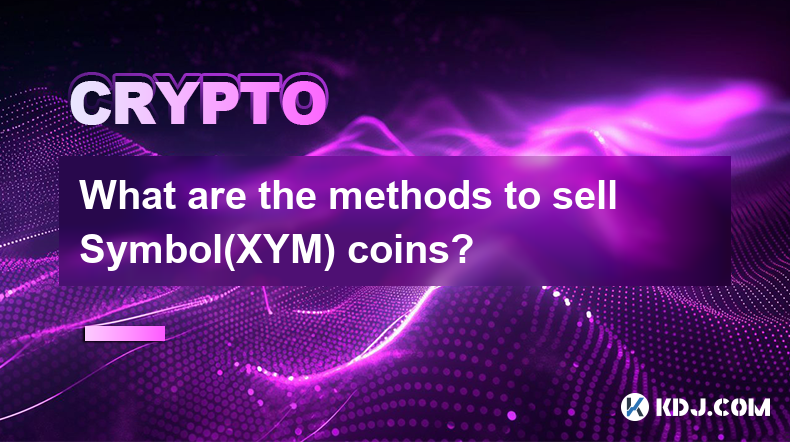
What are the Methods to Sell Symbol (XYM) Coins?
Symbol (XYM) is a public blockchain designed for large-scale data management and enterprise use cases. As with other cryptocurrencies, XYM can be sold through various methods, each offering its own advantages and considerations.
1. Centralized Exchanges:
- Binance: Binance is one of the world's largest cryptocurrency exchanges and offers trading pairs for XYM/USDT and XYM/BTC. It provides high liquidity, competitive fees, and a user-friendly interface.
- KuCoin: KuCoin is another popular exchange for trading XYM. It features a wide range of trading pairs, including XYM/USDT, XYM/BTC, and XYM/ETH. KuCoin offers competitive fees and a dedicated mobile app.
- Huobi Global: Huobi Global is a longstanding cryptocurrency exchange that supports XYM trading. It provides a comprehensive suite of trading tools and a proven track record of security.
- Crypto.com: Crypto.com is a mobile-first cryptocurrency platform that offers XYM/USDT and XYM/USDC trading pairs. It features a secure and easy-to-use interface.
2. Decentralized Exchanges:
- Uniswap: Uniswap is a decentralized exchange that operates on the Ethereum blockchain. It allows users to swap XYM directly with ETH or other ERC-20 tokens. Uniswap is known for its liquidity pools and low fees.
- PancakeSwap: PancakeSwap is a decentralized exchange built on the Binance Smart Chain (BSC). It supports XYM/BNB and XYM/BUSD trading pairs. PancakeSwap offers a fast and low-cost trading experience.
- SushiSwap: SushiSwap is a decentralized exchange that operates on both Ethereum and Polygon. It offers XYM/ETH, XYM/USDT, and XYM/MATIC trading pairs. SushiSwap is known for its innovative features, such as yield farming.
3. Peer-to-Peer (P2P) Marketplaces:
- Bisq: Bisq is a decentralized P2P marketplace that facilitates direct trading between users. It supports XYM trading without the need for a centralized intermediary. Bisq offers privacy, flexibility, and lower fees compared to centralized exchanges.
- LocalBitcoins: LocalBitcoins is a P2P marketplace that connects buyers and sellers of Bitcoin (BTC). While BTC is the primary asset traded, it also facilitates XYM/BTC trading. LocalBitcoins provides escrow services for secure transactions.
- Hodl Hodl: Hodl Hodl is another P2P marketplace designed for privacy-conscious traders. It supports XYM trading with various payment options. Hodl Hodl offers anonymity and control over the trading process.
4. Crypto ATMs:
- CoinATMRadar: There are several cryptocurrency ATMs that support XYM withdrawals. Using CoinATMRadar, you can search for XYM-compatible ATMs near your location. Withdrawals using crypto ATMs typically require KYC verification.
- General Bytes: General Bytes is a manufacturer of cryptocurrency ATMs that support XYM withdrawals. Their ATMs are widely distributed in many countries around the world. General Bytes ATMs are known for their reliability and user-friendliness.
- Genesis Coin: Genesis Coin is a company that offers a range of cryptocurrency ATMs. Some of their ATMs support XYM withdrawals. Genesis Coin ATMs are known for their security and advanced features.
5. Over-the-Counter (OTC) Trading:
- OTC Brokers: OTC brokers are intermediaries that facilitate large-volume crypto transactions off-exchange. They provide customized trading services and negotiated prices. OTC trading offers privacy, security, and personalized support.
- Remitano: Remitano is an OTC platform that offers XYM trading services. It connects buyers and sellers directly and provides escrow services for secure transactions. Remitano is known for its user-friendly interface and support for both fiat and cryptocurrencies.
- Kraken Institutional: Kraken Institutional is a dedicated OTC trading platform for institutional clients. It offers XYM trading along with personalized support and competitive pricing. Kraken Institutional is known for its high-volume transaction capabilities and professional services.
Disclaimer:info@kdj.com
The information provided is not trading advice. kdj.com does not assume any responsibility for any investments made based on the information provided in this article. Cryptocurrencies are highly volatile and it is highly recommended that you invest with caution after thorough research!
If you believe that the content used on this website infringes your copyright, please contact us immediately (info@kdj.com) and we will delete it promptly.
- Dogecoin Price is Climbing toward $0.20
- 2025-05-09 19:05:14
- Dogecoin (DOGE) Price Prediction: What's Driving DOGE's Current Price Surge?
- 2025-05-09 19:05:14
- Sui (SUI) Integrates with Axelar Network to Unlock Cross-Chain Interoperability
- 2025-05-09 19:00:13
- Bitcoin (BTC) Reaches the Psychological Price Level of $100,000
- 2025-05-09 19:00:13
- Pectra: Ethereum Takes a Transformative Leap Forward, Opening New Markets and Redefining the Stack
- 2025-05-09 18:55:12
- Coinbase Q1:- The leading crypto exchange Coinbase has released it Quarterly report for Q1 2025.
- 2025-05-09 18:55:12
Related knowledge
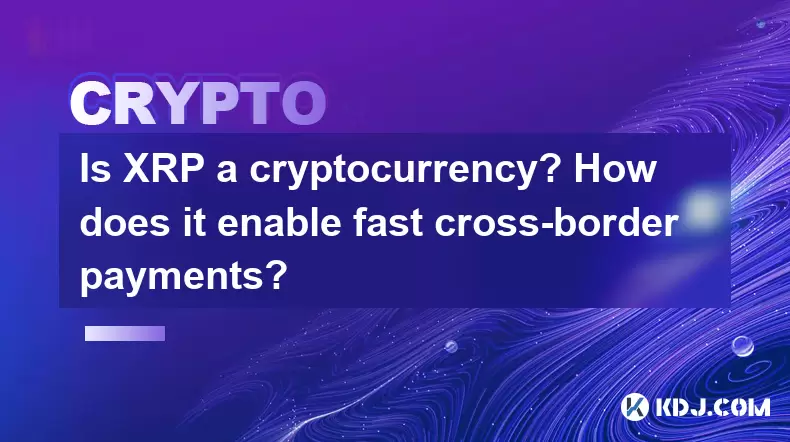
Is XRP a cryptocurrency? How does it enable fast cross-border payments?
May 09,2025 at 04:21pm
Is XRP a cryptocurrency? How does it enable fast cross-border payments? XRP is indeed a cryptocurrency, and it plays a significant role in facilitating fast cross-border payments. Created by Ripple Labs, XRP is designed to serve as a bridge currency in international transactions, enabling quick and cost-effective transfers between different currencies. ...
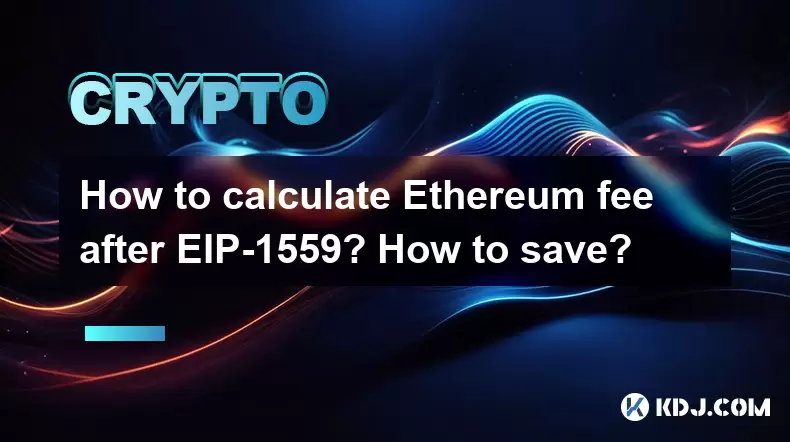
How to calculate Ethereum fee after EIP-1559? How to save?
May 09,2025 at 08:01am
The introduction of EIP-1559 in August 2021 brought significant changes to the Ethereum network's fee structure, revolutionizing how users interact with transaction costs. This article will delve into the specifics of how to calculate Ethereum fees post-EIP-1559 and offer strategies to save on these fees. Understanding EIP-1559 and its ComponentsEIP-155...
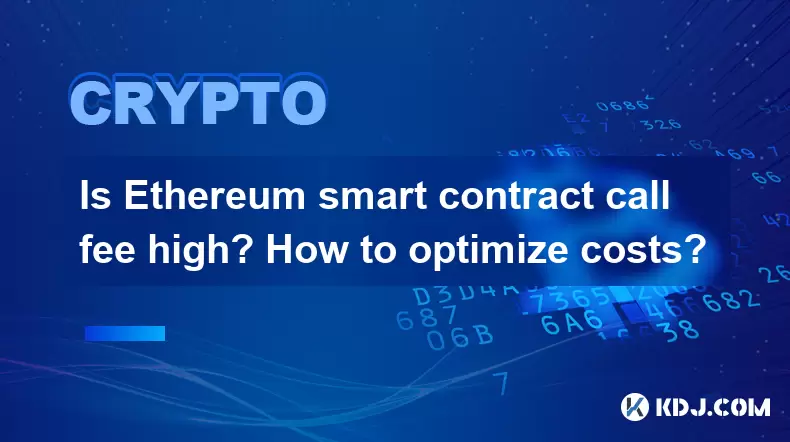
Is Ethereum smart contract call fee high? How to optimize costs?
May 08,2025 at 09:35am
Is Ethereum Smart Contract Call Fee High? How to Optimize Costs? The world of Ethereum smart contracts has revolutionized the way we think about decentralized applications and blockchain technology. However, one of the most frequently discussed topics within this realm is the cost associated with executing smart contract calls. In this article, we will ...
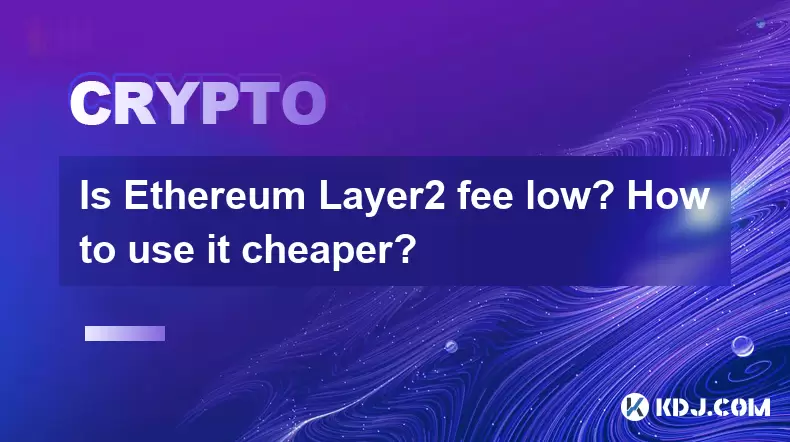
Is Ethereum Layer2 fee low? How to use it cheaper?
May 08,2025 at 03:56am
The question of whether Ethereum Layer 2 solutions offer lower fees and how to use them more economically is a topic of great interest within the cryptocurrency community. Ethereum's Layer 2 solutions have been developed to address the high transaction fees and scalability issues associated with the main Ethereum network. In this article, we will delve ...

How to calculate Ethereum network fee? How to reduce transaction costs?
May 08,2025 at 02:15am
Understanding and managing Ethereum network fees is crucial for anyone involved in transactions on the Ethereum blockchain. The network fee, also known as gas fee, is the amount of Ether (ETH) required to successfully conduct a transaction or execute a smart contract on the Ethereum network. Calculating these fees and finding ways to reduce them can sig...
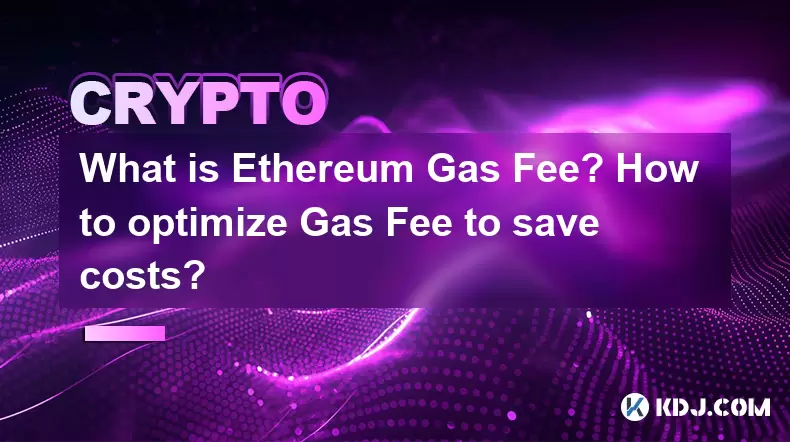
What is Ethereum Gas Fee? How to optimize Gas Fee to save costs?
May 08,2025 at 03:43am
Ethereum gas fees are a crucial aspect of interacting with the Ethereum blockchain. Understanding and optimizing these fees can significantly impact the cost-effectiveness of transactions and smart contract interactions. In this article, we will delve into what Ethereum gas fees are, how they are calculated, and provide detailed strategies for optimizin...

Is XRP a cryptocurrency? How does it enable fast cross-border payments?
May 09,2025 at 04:21pm
Is XRP a cryptocurrency? How does it enable fast cross-border payments? XRP is indeed a cryptocurrency, and it plays a significant role in facilitating fast cross-border payments. Created by Ripple Labs, XRP is designed to serve as a bridge currency in international transactions, enabling quick and cost-effective transfers between different currencies. ...

How to calculate Ethereum fee after EIP-1559? How to save?
May 09,2025 at 08:01am
The introduction of EIP-1559 in August 2021 brought significant changes to the Ethereum network's fee structure, revolutionizing how users interact with transaction costs. This article will delve into the specifics of how to calculate Ethereum fees post-EIP-1559 and offer strategies to save on these fees. Understanding EIP-1559 and its ComponentsEIP-155...

Is Ethereum smart contract call fee high? How to optimize costs?
May 08,2025 at 09:35am
Is Ethereum Smart Contract Call Fee High? How to Optimize Costs? The world of Ethereum smart contracts has revolutionized the way we think about decentralized applications and blockchain technology. However, one of the most frequently discussed topics within this realm is the cost associated with executing smart contract calls. In this article, we will ...

Is Ethereum Layer2 fee low? How to use it cheaper?
May 08,2025 at 03:56am
The question of whether Ethereum Layer 2 solutions offer lower fees and how to use them more economically is a topic of great interest within the cryptocurrency community. Ethereum's Layer 2 solutions have been developed to address the high transaction fees and scalability issues associated with the main Ethereum network. In this article, we will delve ...

How to calculate Ethereum network fee? How to reduce transaction costs?
May 08,2025 at 02:15am
Understanding and managing Ethereum network fees is crucial for anyone involved in transactions on the Ethereum blockchain. The network fee, also known as gas fee, is the amount of Ether (ETH) required to successfully conduct a transaction or execute a smart contract on the Ethereum network. Calculating these fees and finding ways to reduce them can sig...

What is Ethereum Gas Fee? How to optimize Gas Fee to save costs?
May 08,2025 at 03:43am
Ethereum gas fees are a crucial aspect of interacting with the Ethereum blockchain. Understanding and optimizing these fees can significantly impact the cost-effectiveness of transactions and smart contract interactions. In this article, we will delve into what Ethereum gas fees are, how they are calculated, and provide detailed strategies for optimizin...
See all articles






















































































